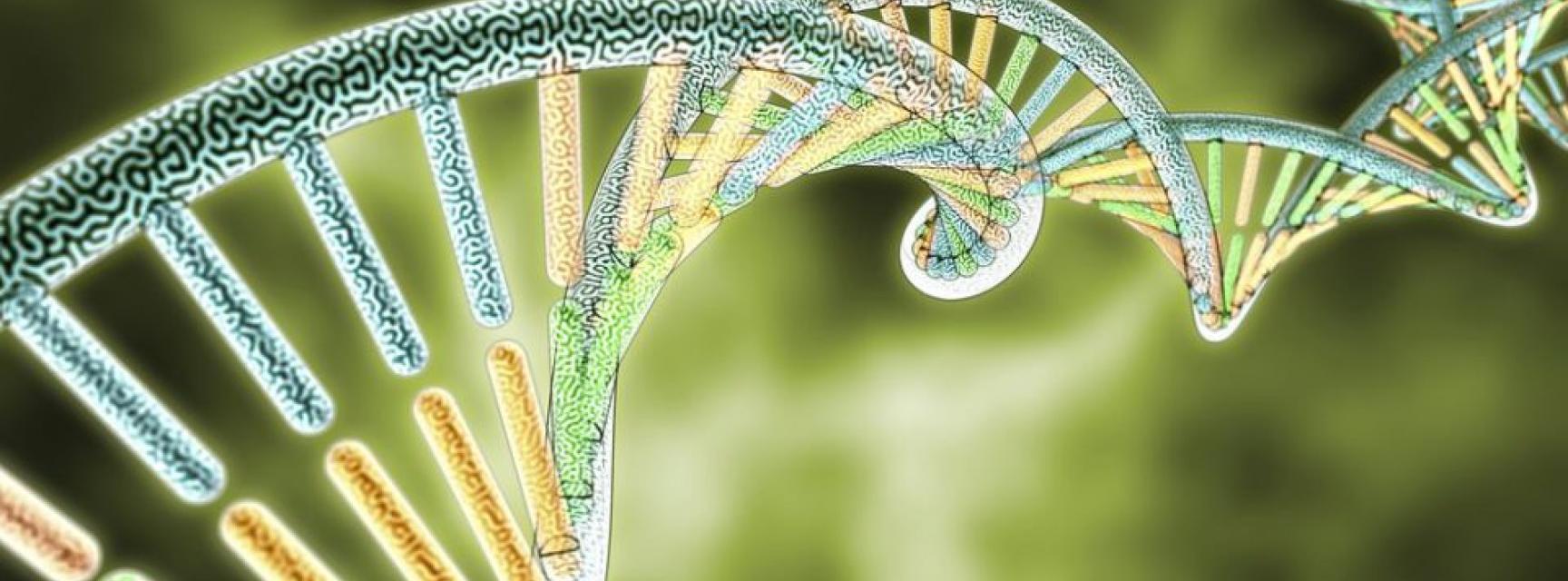
Evolutionary genetics is a fascinating field that seeks to understand how genetic variations play a crucial role in the process of evolution. It explores the mechanisms through which genetic information is passed down from one generation to the next, and how changes in DNA sequences give rise to new traits and species over time.
In this article, we will delve into the world of evolutionary genetics and uncover nine intriguing facts that shed light on the complexity and wonder of this field. From the role of mutations in driving genetic diversity to the study of ancient DNA to understand our evolutionary history, these facts highlight the ongoing discoveries and breakthroughs that continually shape our understanding of evolution.
So, let’s dive in and explore the incredible world of evolutionary genetics!
Key Takeaways:
- DNA is the blueprint of life, guiding how organisms develop and function. Evolutionary genetics helps us understand how species evolve and adapt to changing environments through genetic mutations and natural selection.
- By studying genetic makeup, we can trace human evolution and develop personalized medical treatments. Evolutionary genetics fuels our understanding of health and disease, shaping our knowledge of genetic risk factors and evolutionary forces.
DNA is the Blueprint of Life
The foundation of evolutionary genetics lies in the understanding that DNA carries the genetic information that determines an organism’s traits and characteristics. This remarkable molecule serves as the blueprint or instruction manual for the development, growth, and functioning of all living organisms.
Evolutionary Genetics Explains Diversity
Evolutionary genetics provides insights into how and why species evolve and diversify over time. It helps us understand how new traits emerge, how populations become genetically distinct, and how species adapt to changing environments. Through the process of natural selection and genetic variation, organisms evolve to better survive and reproduce.
Genetic Mutations Drive Evolution
Genetic mutations, which are changes in the DNA sequence, are the raw material for evolution. They introduce new variations in the gene pool, which can lead to changes in traits and potentially drive the formation of new species. Some mutations may have no effect, while others can have beneficial or detrimental impacts on an organism’s survival and reproductive success.
Gene Flow Shapes Populations
Gene flow refers to the movement of genes from one population to another through migration or interbreeding. It is an essential factor in shaping the genetic composition of populations. Gene flow can introduce new genetic variations, increase genetic diversity, and prevent populations from becoming isolated, allowing for the exchange and spread of advantageous traits.
Genetic Drift Influences Small Populations
Genetic drift is the random fluctuation of gene frequencies in small populations. In these populations, chance events can have a significant impact on genetic diversity and the prevalence of certain traits. Genetic drift is particularly influential in isolated populations or during population bottlenecks, where a drastic reduction in population size can lead to a loss of genetic variation.
Molecular Clocks Unravel Evolutionary Timelines
Molecular clocks, based on the observation that DNA accumulates mutations over time at a relatively constant rate, allow scientists to estimate evolutionary timelines. By comparing the genetic differences between species or populations, researchers can infer when their common ancestors lived and how long ago they diverged on the tree of life.
Genetic Adaptation Enhances Survival
Evolutionary genetics reveals how organisms adapt to their environments through genetic changes. Natural selection favors traits that increase an organism’s chances of survival and reproduction. Over generations, populations can become better suited to their habitats, as adaptive genetic variations become more prevalent.
Evolutionary Genetics Holds Clues to Human Evolution
Studying the genetic makeup of humans and our closest relatives provides valuable insights into our evolutionary history. By examining genetic similarities and differences, researchers can trace our lineage, understand ancient migrations, and unravel the genetic basis of human adaptations and traits.
Evolutionary Genetics Fuels Medical Advances
Evolutionary genetics plays a significant role in advancing our understanding of human health and disease. By studying the genetic variation associated with different traits and diseases, scientists can develop personalized treatments, identify genetic risk factors, and uncover the evolutionary forces that have shaped our susceptibility to various illnesses.
Conclusion
Evolutionary genetics is a fascinating field that provides valuable insights into the mechanisms behind the diversity of life on Earth. By studying the genetic changes that have occurred over millions of years, scientists can piece together the puzzle of how species have evolved and adapted to their environments. From the intricate processes of natural selection to the discovery of ancient DNA, evolutionary genetics continues to unlock the secrets of our biological past.
With new advancements in technology and our understanding of genetics, the field of evolutionary genetics is poised for even greater breakthroughs in the coming years. By delving deeper into the genetic blueprints of organisms and exploring the links between genes and evolution, we can gain a deeper understanding of our own origins and the intricate web of life that surrounds us.
As we continue to unravel the mysteries of evolutionary genetics, we gain a deeper appreciation for the incredible complexity and beauty of the natural world.
FAQs
1. What is evolutionary genetics?
Evolutionary genetics is the study of how genetic changes occur over time within and between populations, leading to the evolution of new species or the adaptation of existing ones.
2. How does natural selection influence genetic changes?
Natural selection is a key driver of genetic changes in populations. It acts on the genetic variation within a population, favoring traits that increase an organism’s chances of survival and reproduction.
3. Can genetic mutations lead to evolution?
Yes, genetic mutations can lead to evolution. Mutations are the source of genetic variation, and when beneficial mutations arise and become more prevalent in a population, they can drive evolutionary change.
4. What role does DNA sequencing play in evolutionary genetics?
DNA sequencing allows scientists to analyze the genetic makeup of organisms and compare their genomes to understand evolutionary relationships and identify genetic changes that have occurred over time.
5. How does evolutionary genetics contribute to medical research?
Evolutionary genetics provides insights into the genetic basis of diseases and helps researchers understand how pathogens evolve and develop resistance to drugs, leading to the development of more effective treatments.
6. Can evolutionary genetics explain human evolution?
Yes, evolutionary genetics plays a crucial role in studying human evolution. By analyzing the genetic differences between humans and our closest relatives, we can uncover the genetic changes that shaped our species over time.
7. Are there any ethical implications of studying evolutionary genetics?
Studying evolutionary genetics raises ethical questions related to issues such as genetic engineering, cloning, and the implications of understanding our genetic heritage. These complex ethical considerations require careful thought and discussion.
8. Can evolutionary genetics help with conservation efforts?
Yes, evolutionary genetics can aid in conservation efforts by helping identify genetically distinct populations, understanding patterns of migration, and guiding breeding programs to maintain genetic diversity in endangered species.
9. What are some future directions in evolutionary genetics research?
Future research in evolutionary genetics may focus on understanding the role of epigenetics in evolution, exploring the genetic basis of complex traits, and utilizing advanced computational methods to analyze large-scale genomic data.
Evolutionary genetics is a fascinating field, but there's still more to explore! Dive deeper into the mysteries of genetic drift, a powerful force shaping populations. Uncover the wonders of natural selection, driving species to adapt and thrive. Lastly, don't miss out on genetic variation, the very foundation of life's diversity. Each topic offers a unique perspective on the incredible world of evolutionary genetics, waiting for you to discover.
Was this page helpful?
Our commitment to delivering trustworthy and engaging content is at the heart of what we do. Each fact on our site is contributed by real users like you, bringing a wealth of diverse insights and information. To ensure the highest standards of accuracy and reliability, our dedicated editors meticulously review each submission. This process guarantees that the facts we share are not only fascinating but also credible. Trust in our commitment to quality and authenticity as you explore and learn with us.


